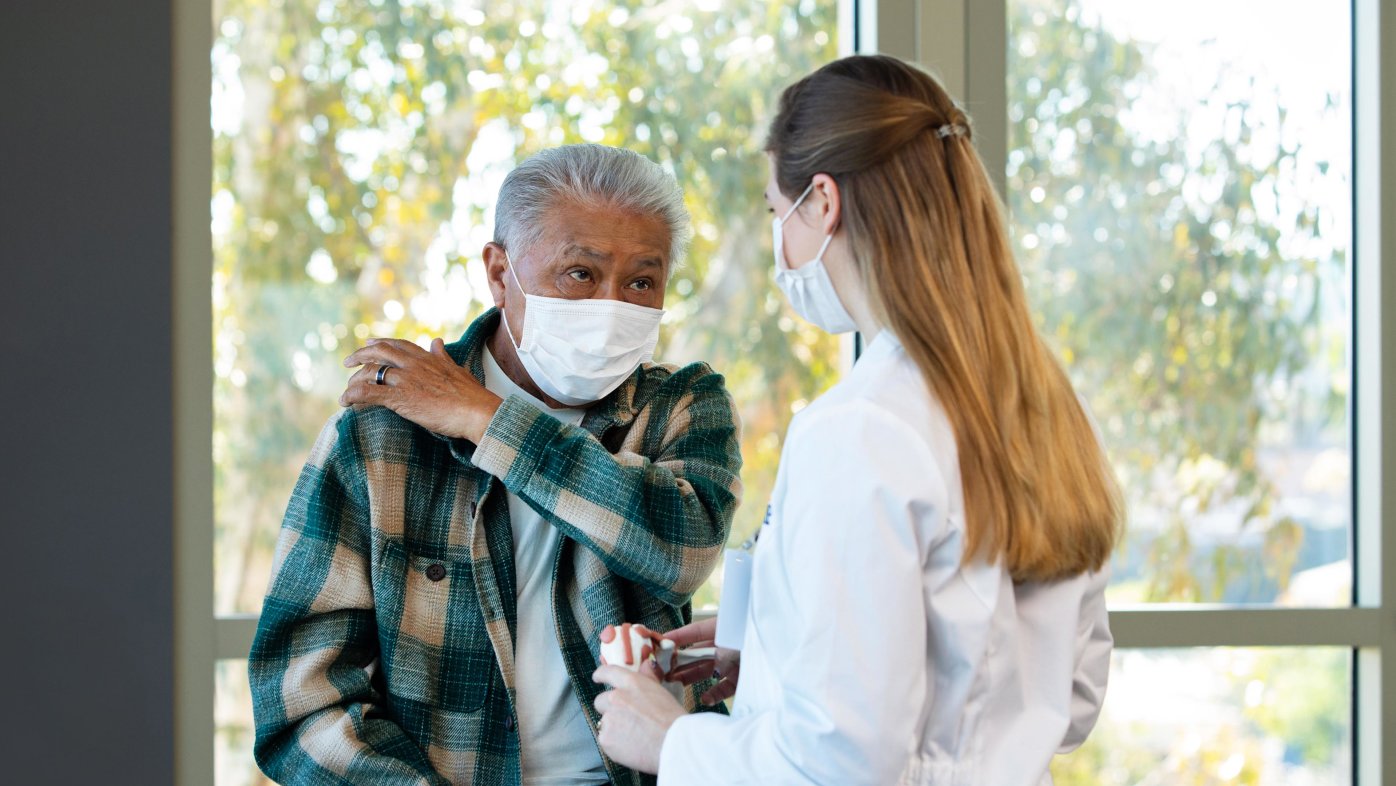
Osteomyelitis
Find an orthopedic surgeon near you
Choose the San Diego orthopedic specialist who's right for you.
Your options for healing from osteomyelitis
Have you, or has someone you love, been diagnosed with osteomyelitis? Your first step toward healing is to understand what osteomyelitis is and what you can do about it.
What is osteomyelitis?
Osteomyelitis is an inflammation of the bone or bone marrow, which is most commonly caused by a bacterial infection. Fungi are the other, less likely, offenders.
Though it's not always possible to pinpoint the exact origin of infection, these microorganisms can infect the bones in the following ways:
Bacteria enters the bone through a traumatic or surgical wound
Bacteria travels through the bloodstream from other infected areas in the body
Infection spreads to the bone from an adjacent, soft-tissue wound
Symptoms of osteomyelitis
The most common symptoms of osteomyelitis include discomfort in the affected area, fevers or night sweats, lack of energy and weight loss. Warning signs include persistent drainage from a wound that will not heal on its own, swelling and redness in the area of the surgical incision.
Risk factors of osteomyelitis
Those who are most at risk for developing osteomyelitis are individuals who have conditions such as:
Cancer
Chronic lymphedema
Diabetic
Elderly
Extensive scarring
Organ failure
Orthopedic injuries that require surgical repair
Poor nutrition
Previous radiation therapy
Steroids use
Use of tobacco products
Weakened immune system
Your osteomyelitis diagnosis
Osteomyelitis treatment options
Individualized treatment options are based on a number of factors, including:
Location of infection
Overall health of the patient
Quality of bone and soft tissue
Severity of infection
The most common treatments for osteomyelitis include a combination of medical (local and systemic antibiotics) and surgical protocols.
Surgical treatments may include one or more of the following procedures:
Drainage of the infected area
Reconstruction to restore form and function
Removal of infected hardware and bone